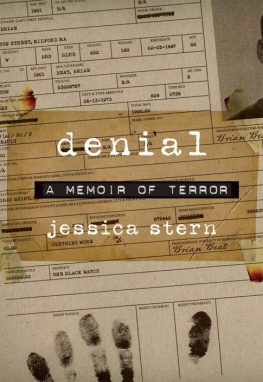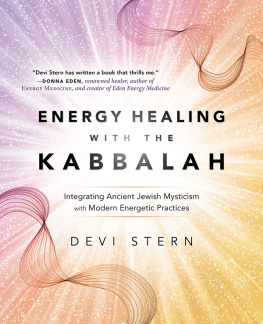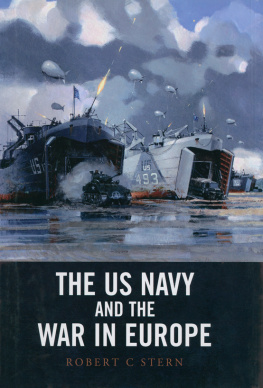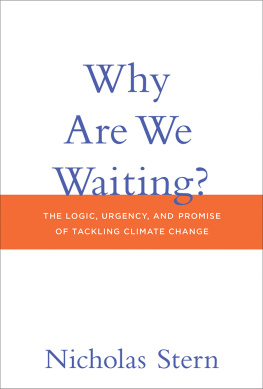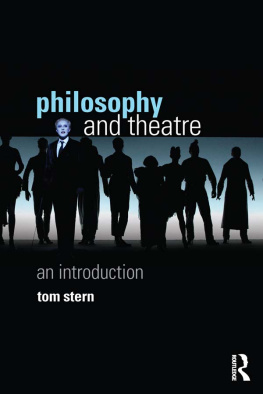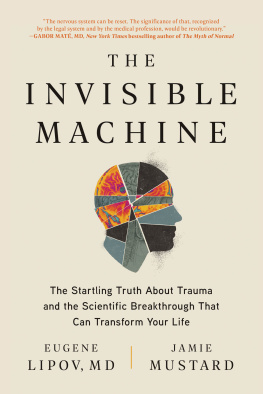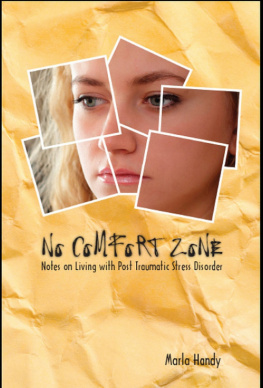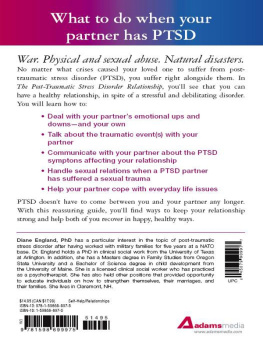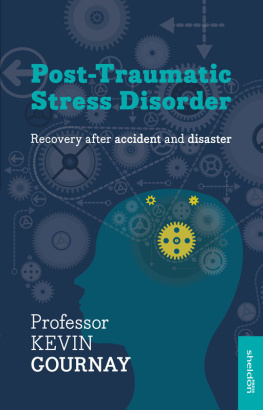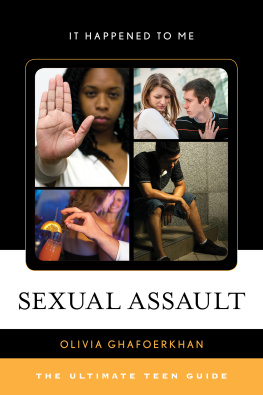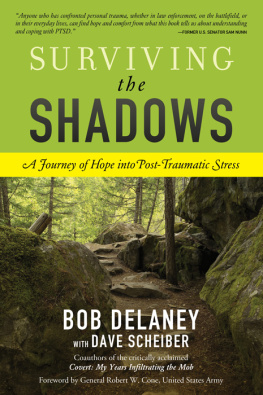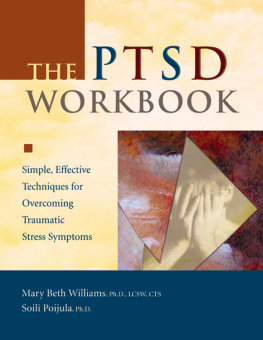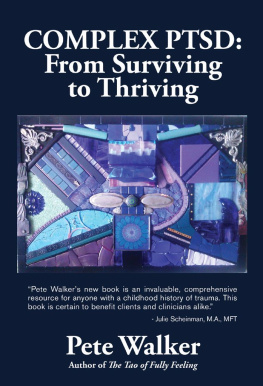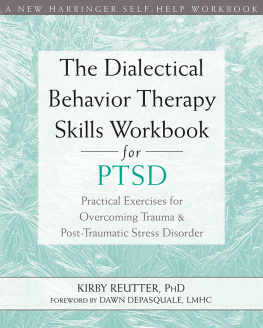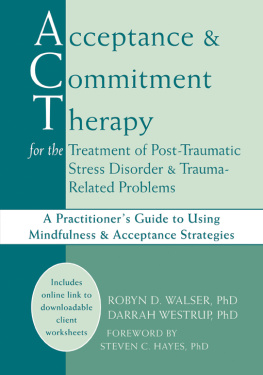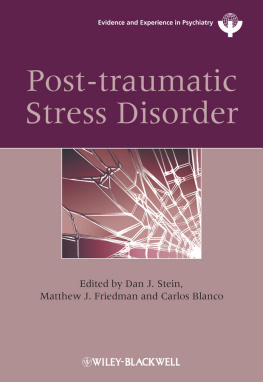Stern - Denial : a memoir of terror
Here you can read online Stern - Denial : a memoir of terror full text of the book (entire story) in english for free. Download pdf and epub, get meaning, cover and reviews about this ebook. City: New York, United States, year: 2010, publisher: HarperCollins;Ecco, genre: Art. Description of the work, (preface) as well as reviews are available. Best literature library LitArk.com created for fans of good reading and offers a wide selection of genres:
Romance novel
Science fiction
Adventure
Detective
Science
History
Home and family
Prose
Art
Politics
Computer
Non-fiction
Religion
Business
Children
Humor
Choose a favorite category and find really read worthwhile books. Enjoy immersion in the world of imagination, feel the emotions of the characters or learn something new for yourself, make an fascinating discovery.
Denial : a memoir of terror: summary, description and annotation
We offer to read an annotation, description, summary or preface (depends on what the author of the book "Denial : a memoir of terror" wrote himself). If you haven't found the necessary information about the book — write in the comments, we will try to find it.
Abstract: A scientist and expert on terrorism and post-traumatic stress disorder describes her own journey through trauma and its lingering effects after repressing and disassociating her own ordeal as the victim of an unsolved sexual assault as a teenager
Stern: author's other books
Who wrote Denial : a memoir of terror? Find out the surname, the name of the author of the book and a list of all author's works by series.
Denial : a memoir of terror — read online for free the complete book (whole text) full work
Below is the text of the book, divided by pages. System saving the place of the last page read, allows you to conveniently read the book "Denial : a memoir of terror" online for free, without having to search again every time where you left off. Put a bookmark, and you can go to the page where you finished reading at any time.
Font size:
Interval:
Bookmark:
Denial
A Memoir of Terror
Jessica Stern

This book is dedicated to my father,
who taught me the value of persistence,
and that courage comes in many guises
Contents
Rape
The Legacy of the Holocaust
The Investigation
The Making of a Spy
The Rapist
Climbing Away
Denial
The End of Denial
The Witnesses
Collateral Damage
Child Victims
Wars Victims
Faith
Knowing how traumatic reliving these times was for me, I did not want to expose the people who spoke to me about their own experiences. So, for many of the subjects I interviewedvictims, family, friends, and law enforcement officialsI have changed names and modified other identifying characteristics, such as their towns of residence, in order to preserve their anonymity. In chapter five, the words I attribute to Mary (a pseudonym) were actually combined with those of another person who knew the rapist. I have also chosen to change the names and other characteristics of the many priests who were named as possible abusers. Even though many of them were cited in the criminal and civil complaints that overwhelmed the Worcester and Boston dioceses in past years, confirming their connection to these events was beyond the scope of my project. The goal in all cases was to protect peoples privacy without damaging the integrity of the story.
For the last twenty years, I have been studying the causes of evil and violence. Until now I never questioned why I was interested in this work, or why I was able to do it. This book answers a question that is always addressed to me when I speak about my work on terrorism: How could a girl like you visit terrorist training camps in Pakistan? Werent you afraid? The answer is that I wasnt aware that I was afraidand this book explains why. After a series of traumas, one can lose the capacity to feel fear appropriately.
My narrative takes at its starting point the hour that a rapist spent with a gun trained on my sister and me when she was fourteen and I was a year older. Both my sister and I went on to lead relatively happy and productive lives after the trauma. My sister is a successful marketing communications executive, an opera singer, and an actress. She is married and has two children. She feels great joy in her family and in her music, and no one would describe her as a victim. I similarly take enormous pleasure from my family and my work.
And yet, from childhood on, I noticed puzzling changes that seemed to grow worse over time. With each passing year, I seemed to feel less and lessless pain, but also less joy. As a child, I wanted to be a writer, but continuing bad grades in classes that required writing persuaded me to give up. I found myself more comfortable studying unemotional subjects. Instead, I majored in chemistry, in part because it came relatively easily to me, and in part because I found it comforting that the answers were either right or wrong, unlike in real life, where emotional valences count. I was planning to become a chemist, but then I got seduced by curiosity about violence. I was both repulsed and fascinated. I skipped the war parts in War and Peace , but wrote a doctoral dissertation on chemical weapons, which focused mainly on the mechanics of violence, with little attention to the human toll.
Ultimately, I became an expert on terrorism. I wrote my first article on terrorism in 1983. At the time, this was an eccentric choice, and not a very wise career move. Very few people took the threat of terrorism seriously. Still, I intuited that terrorism would become increasingly important, and I continued working on it. I started out doing technical work, related to terrorist weaponry. But eventually I gave in to an intense curiosity about the terrorists themselves. In that work I made use of a personality quirk, rather than my academic training. I am fascinated by the secret motivations of violent men, and Im good at ferreting them out.
My unusual reaction to fear turned out to be an asset in this work: I discovered that I could do things that other people find frightening, such as traveling to Beirut or Lahore to meet with terrorists. I found that I was able to silence judgment as I listened, to stop myself from feeling fear or horror. I saw that if I allowed myself to feel only curiosity and empathynot to be confused with sympathythe terrorists would want to talk to me.
Nonetheless, fear found me. Situations that other people dont find frightening, such as the sound of fireworks, alarm me inordinately. I do not like to be in crowds, especially at night, when there might be a frisson of sexuality in the air. I do not like to be in shopping malls, especially under fluorescent lights. When I am nervous for any reason, I find the clicking of a turn signal or the ticking of a clock almost unbearably agitating. But in truly frightening situations, I retain my composure. For example, when I found myself facedown on the floor in the middle of an armed robbery, a peculiar sense of calm enveloped me. I paid little attention to these surprising states of calm. I could not will myself to respond to danger in any other way, and afterward I could hardly remember the incidents that elicited them. I assumed that my unusual response to danger was a personality quirk, unique to me. I had no idea that these peculiar reactionscalm in the face of danger but fear in response to innocuous sounds or scentswere well-studied aftereffects of trauma.
I consulted a therapistnot about my lack of feeling, but because I wanted to feel less . I did not consider it strange that I told the therapist that I wanted two things from treatment: to feel less emotion and to be more efficient at work. It seemed to me that feelingsany feelingsgot in the way of life. She told me that some of the qualities I assumed I had been born withincluding heightened sensitivity to sudden movements, scents, sounds, and lightwere actually markers of trauma. She suggested that I might have post-traumatic stress disorder (PTSD).
I did not believe this diagnosis. I knew about PTSD from having worked with soldiers, and I could not imagine that my own life experience would result in similar symptoms. I had long ago brushed the memory of my rape aside. I considered myself to have overcome it, to have moved on. I wanted to contribute to society rather than remain stuck in the past, cringing in terror. I did not want to allow fear to influence my decisions in any way. And yet, ironically, terror became my central preoccupation. I felt compelled to understand the deeper motivations of those who hurt others. Instead of feeling terror, I studied it.
After the completion of my second book on terrorism, I found myself wanting to understand what had happened to me during and after my rape. I requested a complete copy of the police report. When the police read the file in 2006 in order to redact it, they realized that a child rapist might still be at large. Pedophiles grow old like the rest of us, but they often continue committing the same crimes unless they are physically stopped.
The police required my help. But I also required theirs. Just as I needed to understand the motivations of the terrorists I interviewed, I found myself needing to understand my rapist, as a way to tame a terror that I was beginning to feel for the first time.
I soon realized that I had forgotten many of the details of the rape, even though I was not a small child when the crime occurred. I felt compelled to answer a question I have spent my professional life asking in regard to terrorists: What happened to the boy who became my rapist? Was there anything in his life story that might explain, at least in part, why he would want or need to hurt my sister and me? What happened to him afterward? I also wanted to know: Why did I go into a trancelike state during the rape, and why have I continued to go into that state whenever I feel truly threatened? And there were larger questions that pulled me in: Why does the threat of violent death alter some of us, even if subtly, forever? Why does it make us unusually numb or calm when we ought to feel terrified? Why do scents or sounds trigger in some of us a feeling of terror or unbearable dread, even in situations where we know, at least intellectually, that we are perfectly safe?
Next pageFont size:
Interval:
Bookmark:
Similar books «Denial : a memoir of terror»
Look at similar books to Denial : a memoir of terror. We have selected literature similar in name and meaning in the hope of providing readers with more options to find new, interesting, not yet read works.
Discussion, reviews of the book Denial : a memoir of terror and just readers' own opinions. Leave your comments, write what you think about the work, its meaning or the main characters. Specify what exactly you liked and what you didn't like, and why you think so.

